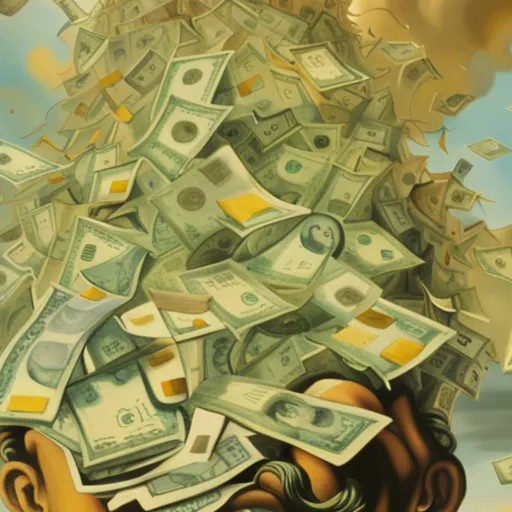10 things I learned from Harry Browne’s Money Book: 99% of Everything You Need to Know About Money & Its Effect Upon the Economy © 2008 By Harry Browne
This book was originally written in 1970 before the US left the gold standard. Thanks to some mentions here from @randomroger and @focusedlife I picked it up. I will join the group in recommending this book!
At first I thought that it was going to be dated (pre-1970) advice. Not that the advice would be wrong, just that the financial world changed when the US left the gold standard.
Most of this list is direct quotes from the book. Highly recommended if you are interested in this kind of thing.

1. You produce or exchange only when you believe it will lead ultimately to something you want.
2. three essential characteristics required of a worthwhile money substitute
1. The warehouse (that issues the receipts) must have a good reputation.
2. The real money must be readily accessible. If you couldn’t exchange your receipt for gold any time you wanted to, what lasting value would the receipt have? And that means . . .
3. The real money must be kept out of circulation. If the warehouseman were to spend your gold or lend it to someone else, how could you expect it to be available when you wanted it?
3. The essential ingredient of real credit is that one person gives up the use of his money in order to allow someone else to use it. He is paid interest for temporarily getting along without the money.
4. Recessions are the fallout from unnecessary investments made during inflationary periods. "a recession really is ... the liquidation period following an inflationary cycle."
5. Most people believe the market benefits from my purchase. But that isn’t the case. The market as a whole benefits from my production, not my purchase.
6. "Rising prices are not inflation; they are an effect of inflation."
Rising prices can result from several different causes (decreased production, for example); but only when they result from an overproduction of paper money do they cause seemingly mysterious changes in the economy
7. On March 26, 2020, the Federal Reserve reduced reserve requirements for all depositary institutions to zero.
This was not mentioned in the book, but it was shocking to me. No reserve requirements mean that barely regulated banks can print money: not just the Treasury.
And so our checks are canceled out by their checks , provided we’re all inflating at the same rate. Different-sized banks can coexist and inflate side by side, so long as the rate of inflation is the same. That’s the job of the Federal Reserve System — to assure that uniformity of inflation. It has several tools with which to do this, the most basic of which is the reserve requirement. With it, the system controls the volume of inflation in the nation.
In modern practice, then, the government doesn’t print paper money to cause inflation. It prints the paper money in response to the inflation that takes place through the bank’s deposit-loan expansion. But the government is still running the show. For the Federal Reserve System determines the extent to which banks may inflate at any given time.
It’s interesting that those who say the 1929 depression couldn’t happen again always cite increased “controls” as the reason for their views. But the “controls” are all on private individuals. There are far fewer controls on those who generate the inflation than there were in 1929.
8. "Another definition of inflation ... Inflation is the counterfeiting of paper money."
"Inflation is the printing of paper money substitutes that aren’t backed by real money. And it doesn’t matter who does the counterfeiting."
"Inflation is mass confusion. No one knows what he’s doing. And every man thinks it’s he who’s out of step with the general prosperity.
The government invokes inflation as a way of appearing to create prosperity — as a way of financing, on a subtle basis, its own programs"
9. He considers coins to be real money ($20 worth of gold pressed into a shape) but things like quarters and dimes (materials values less than their face value) to be tokens: money substitutes.
10. Three ways for a government to raise the financial resources for its spending activities: taxing, borrowing, and printing. Printing (inflation) is a form of tax.
"The third method has a highly useful advantage: few people realize what is going on. In fact, as prices edge upward, people blame businessmen or the unions for causing what they call “inflation.” Actually, it is the government that has taken their resources, but they don’t know it. So inflation is the most subtle kind of taxation; it is always attractive to governments."
11. On Employment
There are only two kinds of unemployed: (1) those who don’t want to work at prevailing wage levels; and (2) those who are legally prevented from working at prevailing wage levels by the various forms of minimum wage laws and union contracts.
So the businessman gets most of his new workers by bidding them away from other jobs, pushing wages upward.
In the process, the labor unions stage a gigantic show of strength to indicate that they are responsible for the higher wage levels, which isn’t possible. All they can do is to move in and soak up the excess bidding power created by inflation.
If it weren’t for inflation, any successful union wage hikes would result in unemployment.
Those are the retired, the pensioners — the individuals who are on fixed incomes that don’t adjust upward to inflation, even though prices are going steadily upward. These individuals in the back of the scene are the ones who are paying for the gains of those getting the handouts from the government and the banks. Every gain received by a handout recipient must be accompanied by a loss to someone else who must now pay more for everything.

No comments.